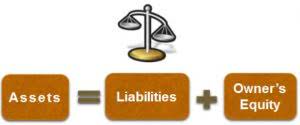How to Choose Accounting Software for Medium-Sized Businesses
There are many providers in the market offering accounting systems such as us (The Access Group), QuickBooks, Xero and Sage. As a medium-sized business, you need to be sure that the new accounting system is future-proofed for your growth. Furthermore, the platform offers a plain double-entry accounting that simplifies the tracking of each business transaction income statement within the organization.
Offline vs. Cloud-based Accounting Software
Robust analytics and reporting tools give businesses real-time visibility into their spend. Midsize companies leverage this data to identify trends, manage budgets, and make informed financial decisions. Additionally, the ability to reduce manual tasks, minimize issues, and streamline payment cycles translates into major cost savings for midsize businesses. best accounting software for medium sized business By automating repetitive jobs, organizations reduce the need for extensive teams and allow them to focus more on strategic initiatives. ERP systems for midsize companies offer automatic data entry capabilities, so you can reduce employment costs. It gathers information from core functions like accounting, sales, marketing, enterprise asset management, and others.

Compliance and tax requirements
- Touted as an intelligent digital business solution, Bill.com has been instrumental in fostering a collaborative environment among providers, suppliers, and clients since its launch.
- This requires automated payroll processing, tax withholding, and benefits tracking, features not typically available in small business accounting tools.
- Thus, TaxJar is SaaS-based accounting software for midsize businesses with a free trial period of 30 days.
- Midsize businesses have outgrown basic accounting tools, but they don’t need the complexity of enterprise-level systems.
- Automation reduces errors, saves time, and enables business owners and finance teams to focus on strategic planning and growth.
- This becomes harder in more complicated businesses with a number of subsidiaries.
Acumatica provides industry-related software solutions and scales for business growth. Acumatica has a high customer satisfaction rating and an easy-to-use user interface (UI). Your accounting solution will track the invoice number, payment status, and descriptions of the products or services rendered for each customer. Quickbook is a top-notch accounting software which is perfect for medium-sized businesses. Even the price of the software is affordable for the small and mid-sized companies. The profit and loss reports given by QuickBooks is the reason why it is called the best accounting software available in the market.
Come scale away with QuickBooks

We take security and privacy seriously and our technology is built with the decades of experience we have protecting our customers’ data. These trackers help us to measure traffic and analyze your behavior to improve our service. The best midsize company ERP system for you must merge all your information to give you a complete picture of what goes on in your company. Epicor doesn’t publish pricing information, but you can chat with a sales representative to get a quote. Based on our observations, SYSPRO provides business trends and insights to give you the information necessary to make good business decisions quickly. Better yet, you can tailor the solution to do whatever you need it to thanks to its no-code platform.
The accounting software should be compatible with your existing applications such as CRM, ERP, and e-commerce https://www.bookstime.com/articles/decision-making-framework platforms. It should also support data synchronization and provide APIs for third-party integration, enabling streamlined workflows and data accuracy. When choosing accounting software for your medium-sized business, scalability is crucial.
Tipalti
- Tally ERP is another intriguing accounting software for medium-sized businesses.
- QuickBooks offers comprehensive features and tools such as invoicing, sales, print reports, and balance and payment management.
- The best accounting software solutions make it easy to track and record investments, manage purchases, sales and both realized and unrealized gains and losses.
- Selecting the right accounting platform is paramount, especially for small business owners looking to scale their financial growth.
- But regardless of your turnover now, all medium-sized businesses need the ability to scale, with the best accounting software to meet your current and future needs.
Through the online portal, you can also give employees access to their pay stubs, W-2s, and time off balances. Here’s our guide to the top solutions based on user reviews, our internal review process, and factors like pricing, integration options, and scalability. All three plans come with an optional add-on for payroll with Gusto for $40 per month plus $6 per month per person. Gusto is a platform that automates payroll filing for all 50 states in addition to automating payroll taxes, deductions and filings and providing employees with the platform to view pay stubs and W-2s online. For just €28 a month, Big Red Cloud provides businesses with a huge array of accounting features with no feature capping or user limits. Oracle NetSuite is recognized as the best enterprise management planning tool (ERP) for medium-sized businesses.
- It has been used in various types of fields like service providers, manufacturing, distribution, etc.
- In 2018, the word spread in the marketing market that Intuit will drop the Quickbooks desktop version altogether.
- This includes general ledger, accounts payable and receivable, inventory management, and payroll processing.
- Tipalti was built to streamline global finance and accounting processes related to payables and POs.
- So, the accounting software for the midsize business you seek must have the expenses tracking feature.
- While it’s ideal for micro and small businesses, especially in the GCC region, it may face challenges in scalability and customization as operations grow.
Fortunately, you don’t have to choose between a system you’ve already outgrown and one you can’t afford. Even if you don’t need these features at first, the best accounting software for mid-sized businesses will include flexible options that makes it easy to add functionality at a later date. If you’re accustomed to using Microsoft Excel for budgeting, it can be intimidating to think about recreating everything in your new accounting software. The best solutions make it easy to transfer budgets from multiple departments or entities, consolidate them and create new financial forecasts with confidence. Consolidate vendor payments across a variety of methods, like ACH, virtual credit cards, and checks, all from a universal interface. A midsize manufacturing company can automate payment workflows to reduce manual tasks, eliminate the need to cut physical checks, or manage multiple banking portals.

This system is advertised to have 6x more capacity than either Pro or Premier. Enterprise can manage more customers, inventory, vendors, and concurrent users than its predecessors. For mid-sized businesses, automating repetitive financial tasks like invoicing, bank reconciliations, and expense tracking is crucial. The businesses that are planning to expand in various countries should definitely prefer this intact because of its amazing features. Xero is a great option for large teams and small- to medium-sized businesses that need high-level accounting systems. It’s also a good fit if you want to integrate Gusto Payroll to your accounting platform.






